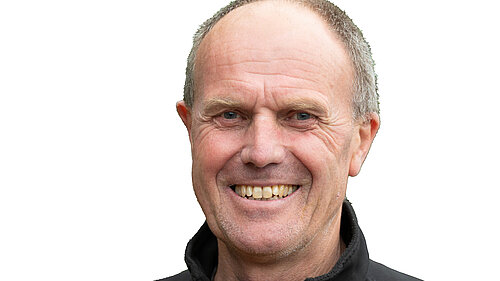From the chamber - A government going backwards!

Back in the mid 1970’s, when I started my Highways and Transport engineering studies, I learnt about the concept of 15-minute neighbourhoods where residents could walk or cycle within their community to access shops, schools, GP surgeries and the other things they need to live.
Many of the new towns designed and built in the 1950’s, and 1960’s used that as a blueprint. However, over time, the car became king and walking and cycling became less attractive on roads congested with traffic.
1980’s Conservatives encouraged out of town shopping centres only reachable by car, adding to congestion, pollution and starting the demise of the High Street, way before internet shopping was a thing.
In the 1990’s, with the threat of Climate Change already apparent, local authorities were asked to produce long term Local Transport Plans, including plans for reducing car domination and make sustainable travel more achievable.
Funding for walking and cycling began to appear and I was involved in one of the first ‘Cycling Towns’, but the momentum was lost in 2010 when Conservative PM David Cameron’s ‘bonfire of quangos’ closed down “Cycling England”, the body responsible for managing much of the change.
Fast forward to 2020, and the government published a “Plan for Walking and Cycling”, backed up by a new body “Active Travel England” in 2022 to oversee funding.
Yet just over a year later, at his first Conservative party conference as leader, Rishi Sunak decides that there is a ‘war on motorists’ and that progress must again stop. 15-minute neighbourhoods, speed limits that make walking and cycling safer and other measures to support road safety are now bad things, and local authorities who want to make their local transport sustainable are the villains. Money which was already (and many times over) announced to be available for local authorities was withdrawn, despite the National Audit Office concluding that every pound spent on active travel schemes benefits the exchequer to the tune of £4.30.
Sunak’s alternative is a series of consultations on ideas such as making utility companies rent lane space for road works and reviewing the existing road filters which make neighbourhoods and schools safer. He wants to reallocate money from rail schemes to filling pot-holes, ignorant that the state of our roads is a consequence of failure to fund resurfacing, not to patch the problems when they appear..
The government says it remains committed to its target of 50% of all journeys in English towns and cities being walked, wheeled or cycled by 2030. Just like they remain committed to Net-Zero by 2050 despite back-tracking on the regulations that would make it happen.
Across Europe and many other countries the benefits of large-scale active travel are now being reaped, with improved health, better air quality, CO2 reductions and reduced congestion for buses and those who need to drive.
Wokingham Borough Council is clear how we build a thriving and sustainable future by creating genuine choice in how we travel. We have a plan, and until early October the government was fully behind us and funding the changes we need to make. I am confident that the shift towards sustainable travel will continue and regain momentum, as all the evidence points to this being the right thing to do. We may lose a year, we will likely lose a government in the process, and I hope that we can once and for all put these decades of false starts behind us..
